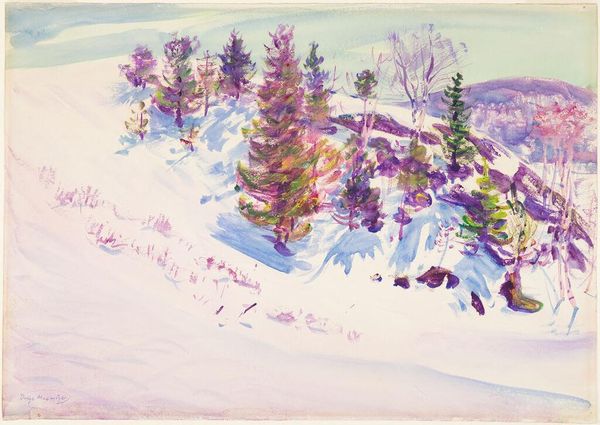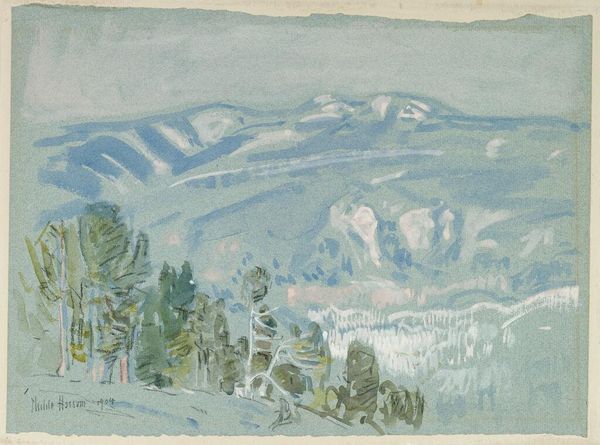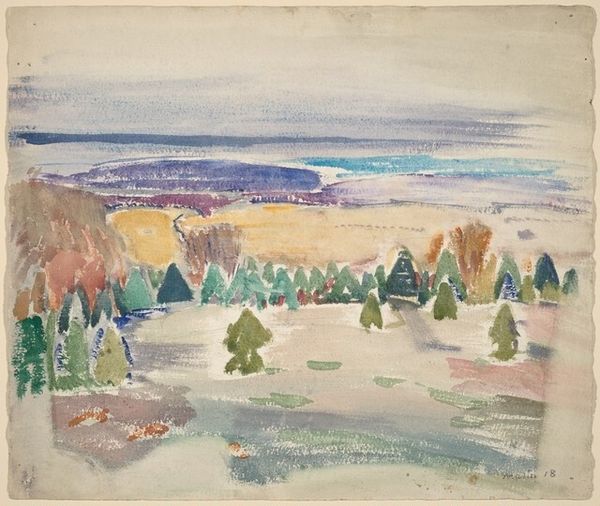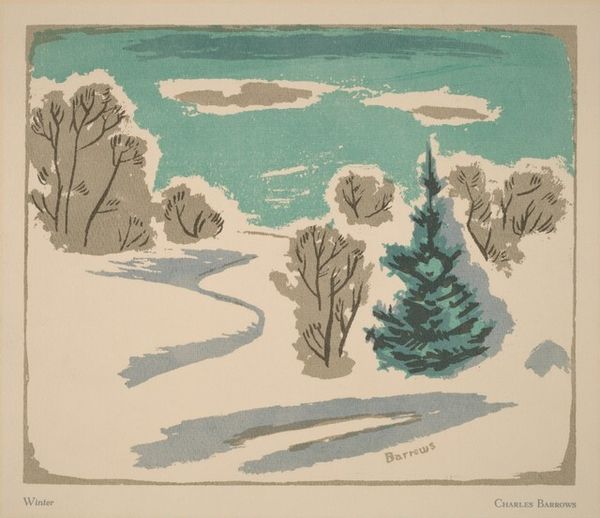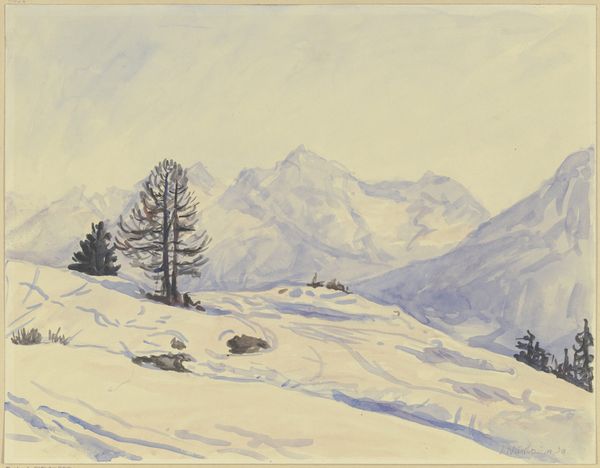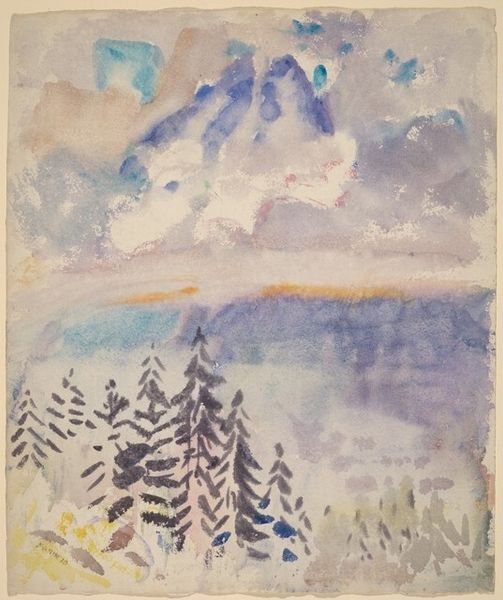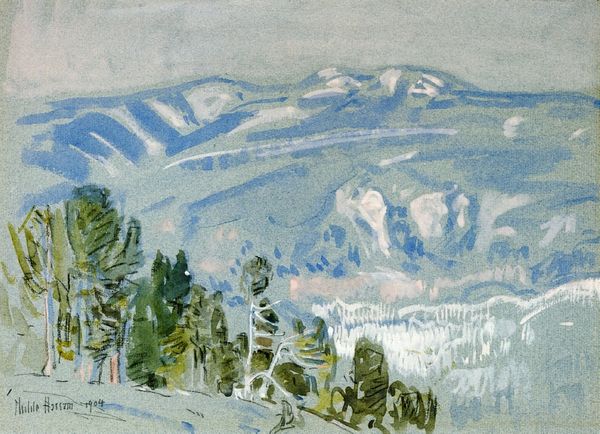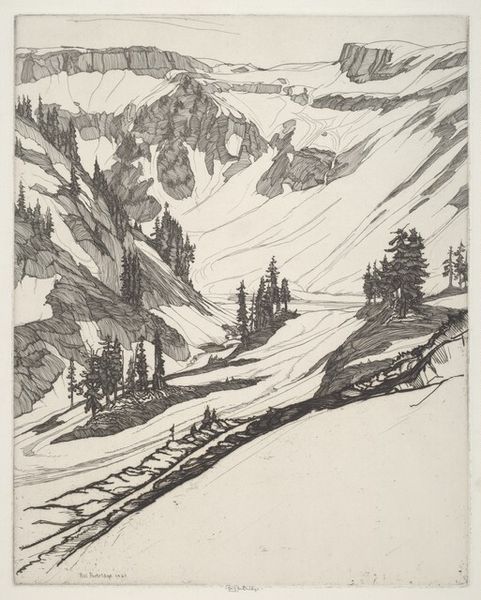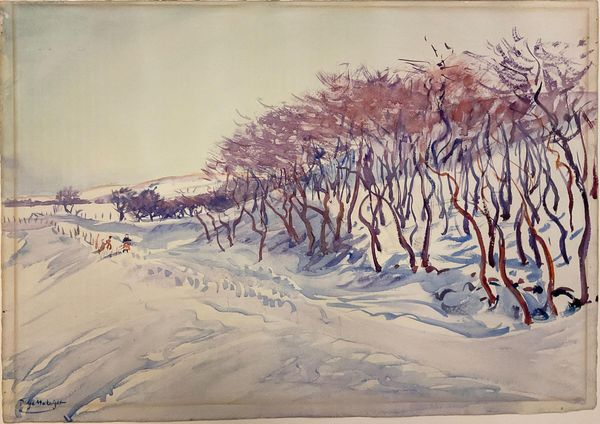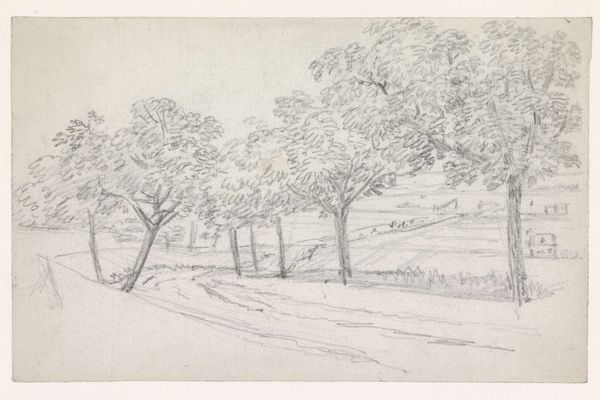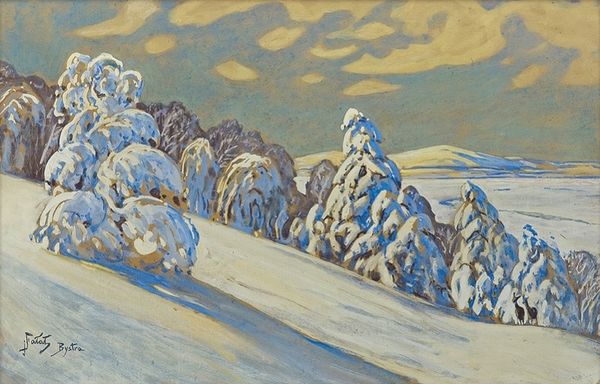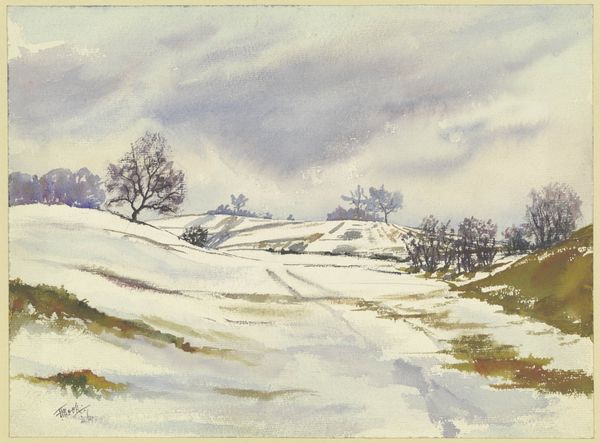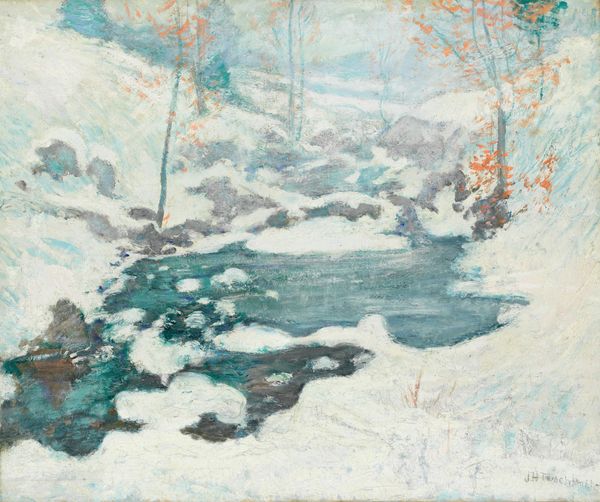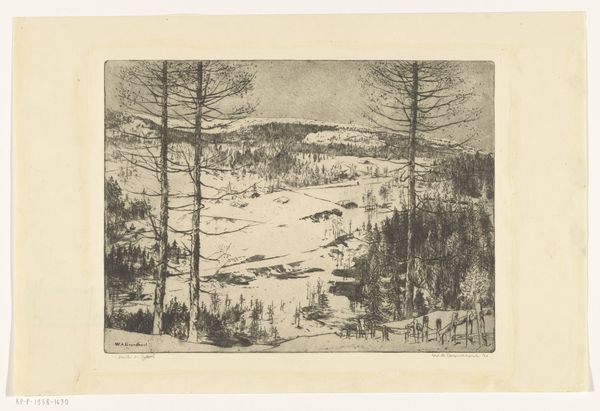
watercolor
#
landscape
#
german-expressionism
#
watercolor
#
geometric
#
expressionism
#
naïve-art
#
naive art
#
abstraction
#
watercolour illustration
Copyright: Gabriele Munter,Fair Use
Editor: This is Gabriele Münter's "Morgenschatten," a watercolor from 1924. It feels almost like a children’s book illustration – these simplified shapes of snowy hills. What strikes you about this piece? Curator: Well, I immediately consider Münter’s historical context. Here we see her returning to representational landscapes after the height of Der Blaue Reiter's more radical abstraction. This retreat is happening against the backdrop of the rise of National Socialism and increasing cultural conservatism in Germany. Editor: So, is the 'naive' style a kind of conscious rejection of more aggressive avant-garde approaches? Curator: Precisely. There’s a fascinating push and pull between personal artistic expression and the broader social and political pressures of the time. This "Morgenschatten" doesn't directly engage with politics, but the turn towards landscape can be read as a longing for simpler, less contested subjects. Why do you think she chooses watercolour here? Editor: It seems almost ephemeral compared to oils… a quickly captured impression. Maybe a less "serious" medium in some eyes, further underscoring this turning away. Curator: Exactly. And consider how critics might view that choice, then and now. Was she 'selling out' or quietly resisting through understated intimacy? Do the simple geometries she is using here remind you of something? Editor: It almost feels like she's referencing traditional folk art techniques with a simplified and modern twist, possibly trying to reconnect with a perceived authenticity that the urban landscape couldn't provide. Curator: It does, doesn't it? Considering all this adds a richness to the seemingly simple watercolor. Editor: Definitely, seeing it within its historical context has completely shifted my understanding. Curator: It has for me too, this conversation gave me insight on how avant-garde became out-moded in some artistic and social settings of the early 20th Century.
Comments
No comments
Be the first to comment and join the conversation on the ultimate creative platform.
